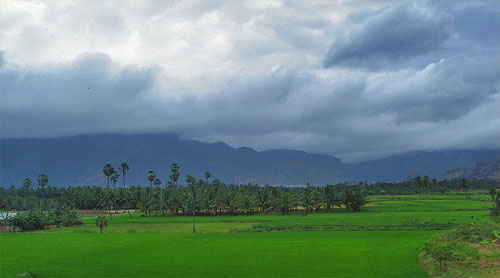
Born In Kambam in Theni, Madras Presidency In Southern Tamil Nadu, India.
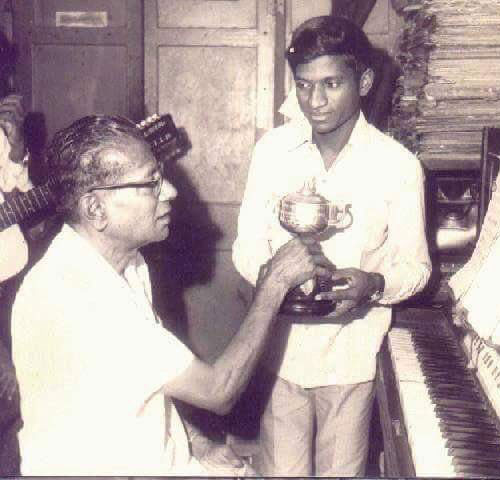
Raaja migrated to the city of Madras, the Southern Movie Capital, when he was 25 years old, looking for a break into music making for the public. He studied under Dhanraj Master, playing the guitar and piano in the Western style.
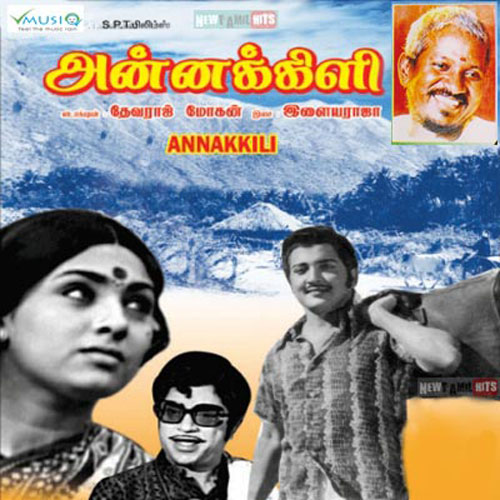
ilaiyaraaja’s break into music for films came with Annakili in 1976. The film dealt with a village story, to which ilaiyaraaja composed great melodies. The songs offered simplicity and musicality typical of Tamil folk in an authentic way, and they offered new sounds–rich orchestration typical of Western music. The songs became an instant hit, the most popular being “Machchana Partheengala” sung by a female voice, S. Janaki
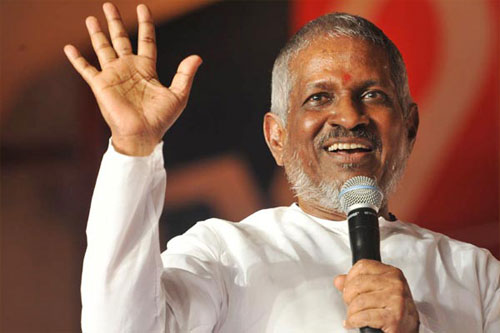
Raaja soon proved his abilities in other styles as well. classical Karnatic melodies were used in KannanOru Kai Kuzhandhai (1978) (Rag Mohanam), Mayile Mayile (Ragam Hamsadhwani), and Chinna Kannan Azhaikiran (Reethi Gowlai). Raaja’s grasp of Western classical structure became evident with his masterful use of the piano, guitar, and string ensembles. Some of the numbers that show his orchestral genius are “Pon malai Pozhudu” and “Poongadhave” from Nizhalgal (1980), Kanmaniye Kadhal from AarilirindhuAruvathuVarai (1979), “Ramanin Mohanam” from NetriKann (1981), “En Iniya Pon nilave from Moodupani (1980), “Paruvame Pudhiya” from NenjathaiKillathe (1981), and “Edho Moham” from KozhiKoovuthu (1982). These songs could literally be heard coming from every doorstep in Tamil Nadu state every day for at least a year after being released. Raaja composed film music prolifically for the next fifteen years, at a rate of as many as three new songs a day
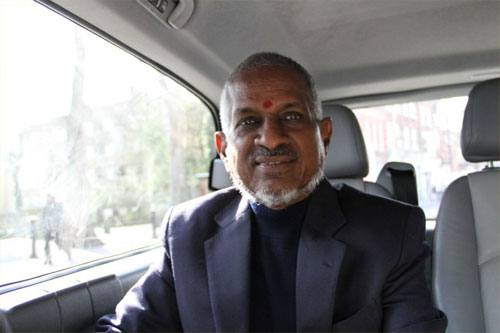
Once during trip a to Europe he visited places where Wolfgang Amadeus Mozart, Johann Sebastian Bach, and Ludwig van Beethoven lived. They were his Manasika Gurus or non-physical teachers. He also met contemporary composers and arrangers including Paul Mauriat. His listeners were awestruck by the quality and quantity of his musical output. He also scored a few films abroad. ilaiyaraaja’s image grew to be a unique one in the history of Tamil cinema: stories, themes, and casts would be changed to fit his music, which swept away the minds of millions of Indians in hundreds of films. ilaiyaraaja also recorded non-film albums, such as “How to Name It” and “Nothing But Wind,” which were well-received in India and abroad.
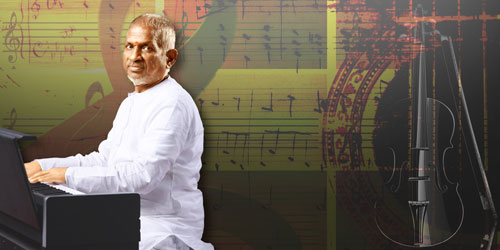
He organised a full symphony performed by the Royal Philharmonic Orchestra in London and thus became the first Indian to compose a full symphony. He is also the first Asian to compose a full symphony performed by the Royal Philharmonic Orchestra
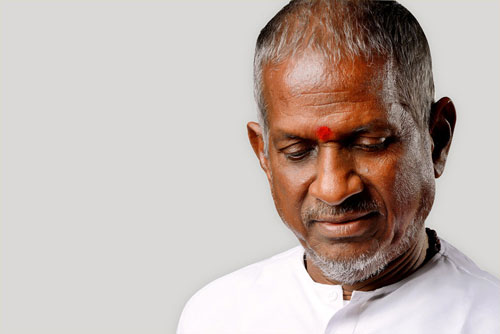
In 1994 December musical season ilaiyaraaja was honoured by the music academy for his invention of a new Raga ” Panjamugi ” and ilaiyaraaja was requested to start the season by singing. Famous violinist V.V.Subramaniyan explained ilaiyaraaja’s gimmics in cartnatic music. In “Sindhu Bairavi” the last song was composed only with “Aarogam” , i.e. only increasing swaras. Exactly speaking the pitch will never come down. Mathematically it is like a Sawtooth wave.
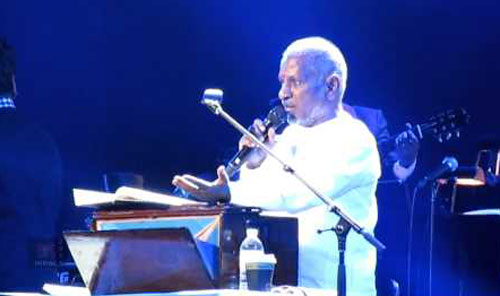
He composed a variety of non-film music,including religious and devotional songs, an oratorio, and world music. He is usually referred to by the title Isaignani (English: Musical Genius), or as The Maestro. ilaiyaraaja is a gold medalist in classical guitar from Trinity College of Music, London.
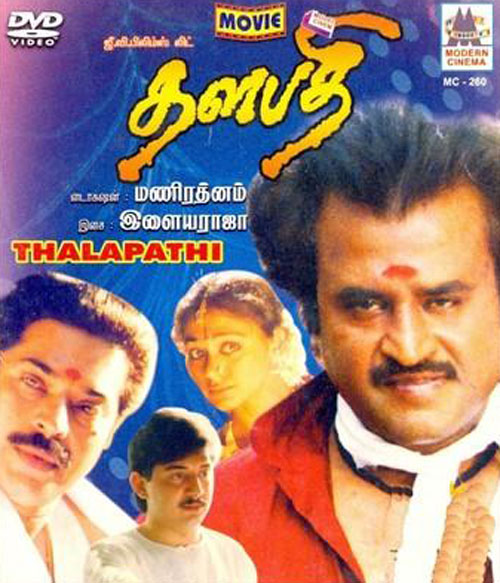
According to an international poll conducted by BBC, people from 155 countries voted his composition Rakkamma Kaiya Thattu from the 1991 film Thalapathi as fourth in the world’s top 10 most popular songs of all time.
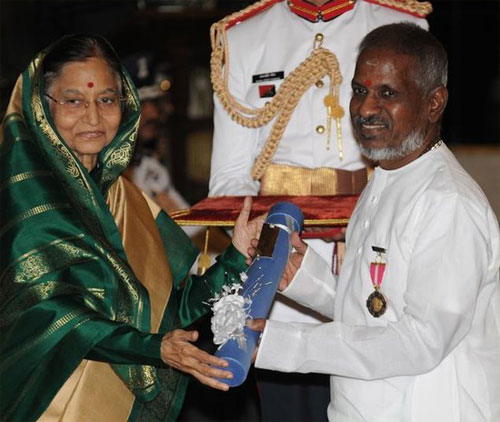
Ilaiyaraaja won National award four times and in 2009 for Malayalam film Pazhassi Raja “Best Background Score” category. Ilaiyaraaja receivedPadma Bhushan, awarded by the Government of India.

In 2012 he received the Sangeet Natak Akademi Award for his creative and experimental works in music field. In a poll conducted by CNN-IBN celebrating 100 years of Indian cinema in 2013, ilaiyaraaja was voted the greatest music composer of India with a maximum of 49%.
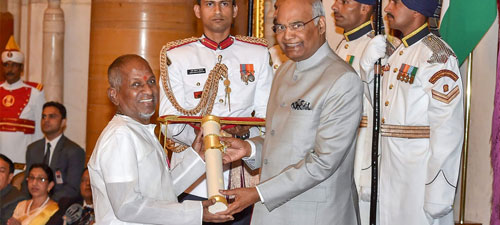
Iliayaraaja received Padma Vibhushan in 2018.